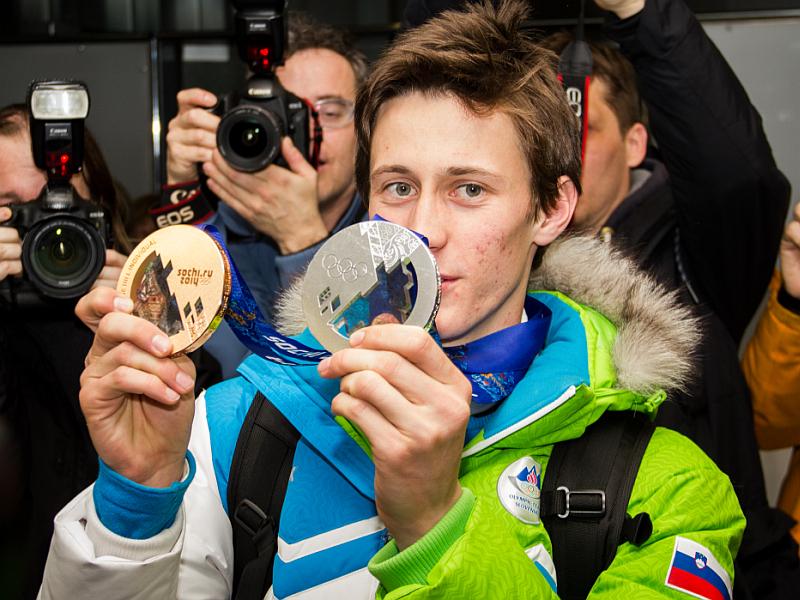
The past months have given Slovenian fans plenty of reasons to celebrate. Ilka Štuhec, Domen Prevc, Boštjan Kline and Anamarija Lampič all experienced their first World Cup victories, while Peter Prevc and Filip Flisar, who have considerable experience in beating the competition, also made it to the number-one podium positions.
However, the performance of Slovenian winter athletes at World Championships paints a less happy picture.
The climax of the season was undoubtedly Ilka Štuhec’s performance at the St. Moritz World Championship, where she took the gold. However, this was the only Slovenian medal at the World Championships, which is the worst result in a decade – since the Torino 2006 Olympics, where Slovenian winter athletes failed to win a single medal.
The “Golden Age” began in 2011, when medals were won by Slovenian Alpine skiers, snowboarders, jumpers, and cross-country skiers. Together, they won no fewer than six medals, doubling the previous Slovenian record of three medals. The next major season for competitions, 2013 -- only biathlon and ski jumping have major competitions every four years, so those seasons do not carry the same weight --, saw the number of medals increase to seven. In 2014, the number topped at nine medals, while the same zeal continued into 2015, which saw eight medals go to Slovenian competitors. Now, in this pre-Olympic season, only Štuhec has won a medal, which is substantial step backwards.
Only Alpine skiers have shown progress. Tina Maze passed on her winning baton to Ilka Štuhec, while the entire team now has an unprecedented breadth. Among ski jumpers, only Peter Prevc justified his role. His fall in form was to blame for the lack of Slovenian medals this season, but the oldest of the Prevc brothers was the only Slovenian competitor to show consistence from the first to the final events. The rest of the team was far more uneven.
The greatest step backwards, however, came in snowboarding and biathlon. It’s true that both teams were without their best competitors (Žan Košir and Jakov Fak) for almost the entire season, but on the other hand, four snowboarders made it into the quarterfinals three years ago in Rogla, while these days, the best in the parallel discipline standings, Rok Marguč, is ranked only 20th.
In cross-country skiing, a win of the young Lampič, facing very limited competition, was the highlight of the season. A win is a win, but the performance never represented a serious foundation for a medal, which had been predicted by coach Stefano Soracco. Indeed, the medal was as remote as the Andromeda Galaxy in Lahti: far away, but getting closer – only the speed of closing is awfully slow. Cross-country skiing is a specific sport, were rapid progress in the style of ski jumpers like Domen Prevc is impossible.
And then there’s the lone rider of bumps and the master of rough-and-tumble skiing, Filip Flisar. In the past season, the freestyle skier was far behind at first, then twice on the top, and displayed excellent form once again at the World Championships. Even though he has “only” a single medal from major competitions, he has shown time and time again that he is a man who thrives at big competitions. That’s where he finds the greatest motivation for exceptional performances. At the past six major competitions, he managed to make it to the semifinals five times. But unlike most other Slovenian competitors, he has only one chance for a medal at each competition, and in hand-to-hand combat, many things can happen. This was the case on Saturday, when he straddled a gate after a minor collision.
In many of the disciplines, Slovenia is relying on “one-man band” projects, where any problems (fluctuations in from, injuries) get amplified on a team level. After this year’s season, the value and uniqueness of Olympic seasons, such as the one in Sochi three years ago, are becoming increasingly clear. However, this should not be an excuse to fall behind the competition. Instead, it should serve as a warning that much needs to be done before the upcoming Olympic Games.
Slavko Jerič; Translated by J. B.

































































